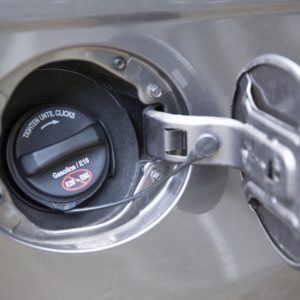Modern vehicles are equipped with on-board diagnostic (OBD) systems to give you or a mechanic a head start in identifying certain issues in your vehicle. The diagnostic trouble codes logged in this system can range from minor issues to ones that are more severe, such as leaks in your vehicle’s fuel system.
P0093 code is one of several diagnostic trouble codes that are related to a possible leak in the fuel system. This is a severe code that must be addressed right away, as any form of leak in the fuel system is dangerous.
What Does the P0093 Code Mean?
Diagnostic Trouble Code (DTC) P0093 stands for “Fuel System Large Leak Detected.” This P0093 code is triggered once the vehicle’s powertrain control module (PCM) detects the possibility of a large fuel leak on the high-pressure side. The code is logged once the PCM perceives a significant drop in fuel pressure within the fuel system’s high pressure rail as reported by the fuel rail pressure sensor.
The PCM checks and controls fuel pressure from the fuel injectors and fuel pumps in modern diesel engines. This pressure is monitored by one or more sensors. Once the PCM detects a notable drop in fuel pressure, it will set the P0093 code. This drop can be caused by several factors, including inaccurate or intermittent sensor signals.
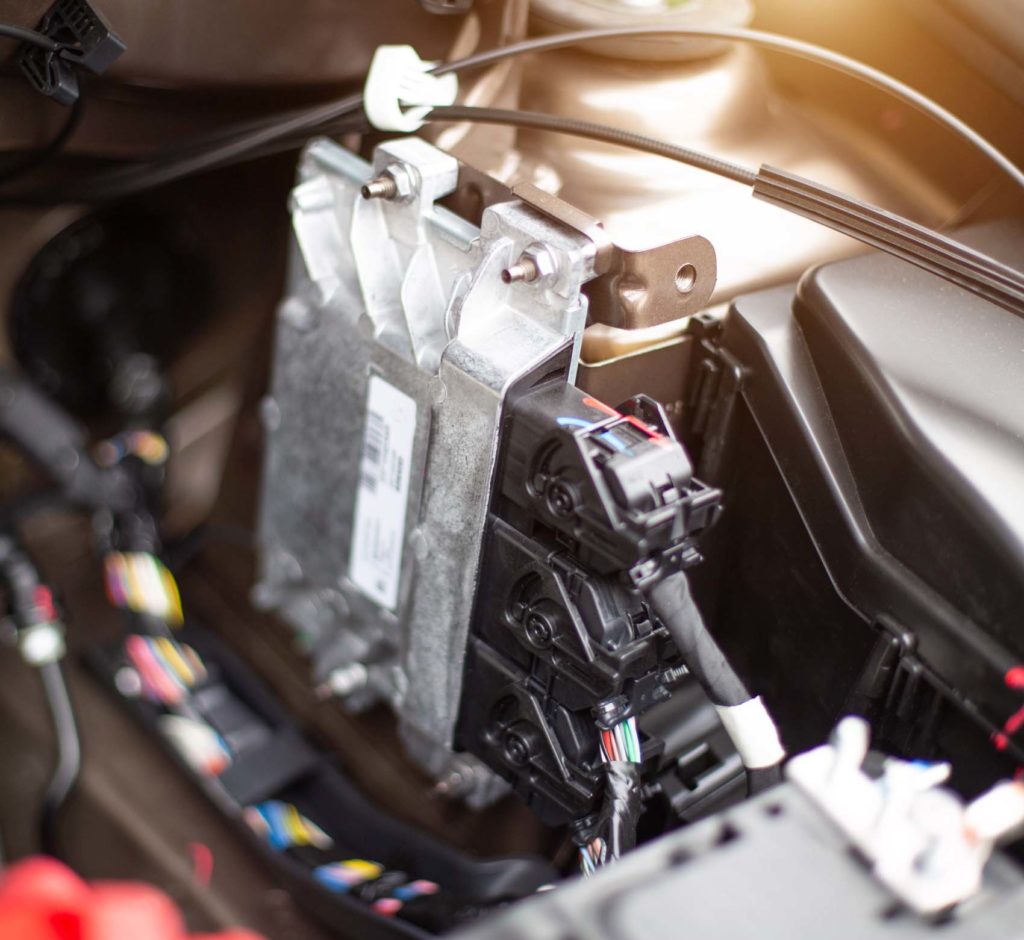
Your vehicle may go into fail-safe mode once this error code is logged. In some cases, this means that the fuel injector pump will stop operating and the vehicle will not start. This error code won’t go away on its own. Since it indicates a possible leak in the fuel system, it’s better not to risk it and get a mechanic to check your vehicle right away.
P0093 and Fuel or Air Leaks
The P0093 is a sort of a peculiar code that can point to an air leak or a fuel leak depending on the platform.
On a 2017 Ford Edge
On a 2017 Ford Edge, the code is still defined as “P0093 – Fuel System Leak Detected – Large Leak,” but then you also get instructions to look for air leaks. Here’s a paraphrase:
The P0093 DTC sets when the PCM detects an air leak that exceeds a calibrated limit for greater than 5 seconds. If the airflow entering the engine exceeds the airflow through the throttle, a leak is detected and this diagnostic fails. Ford continues by advising an examination of unmetered air leaks between throttle body and intake valves or perhaps to search for air leaks at the intake manifold. The most probable cause listed is a leaking Positive Crankcase Ventilation (PCV) system.
On a Dodge RAM Diesel
On the other hand, if you look up code P0093 on a Dodge RAM Diesel, you get the following description of the system that triggers the code on that vehicle:
The Powertrain Control Module (PCM) determines that there is a leak in the Low Pressure Fuel Delivery system based on inputs from the High Pressure Fuel system, Fuel Tank Level Signal, Emissions systems, and other engine conditions.
The PCM will illuminate the MIL after this diagnostic runs and fails for two consecutive drive cycles. This DTC will cause active regeneration to be disabled.

Note that Ford and Chevy common rail diesels don’t list code P0093. (You can find more information in our advanced technical discussion about common rail systems).
Note: The definition of code P0093 may be different depending on the vehicle manufacturer. Consult the appropriate repair manual or repair database for the exact code definition.
What are the Possible Causes of the P0093 Code?
Here are the possible triggers of this error code:
- Malfunctioning fuel injector
- A leak in the fuel line common rail
- Failed fuel pressure sensor
- Failed fuel pump or lift pump
- A fuel heater that’s constantly on
- Faulty fuel temperature sensor
- Leaks in the high-pressure circuit
- Circuit issues (damaged wires and poor connections)
- Malfunctioning fuel pressure regulator
- Blocked fuel filter
- A leak in the injector pump
- Faulty fuel control actuator
- Malfunctioning cascade overflow valve
- Issues with electrical wirings in the injectors and/or PCM
- Fuel pressure limiting valve
- Malfunctioning PCM

What are the Common Symptoms of a P0093 Code?
Here are the common symptoms of a P0093 code:
- Illuminated check engine light
- Decreased engine performance
- Engine stalling
- Vehicle will not start
- White smoke from the exhaust (diesel engines)
- Decreased fuel efficiency
How to Diagnose the P0093 Code
Note: To prevent serious personal injury, don’t ever disconnect any fuel line from the rail with high pressure in the rail.
Diagnosing the root cause of code P0093 is no easy task. Your engine’s fuel system is composed of several components that may fail and cause fuel pressure to drop. It may not be easy for the everyday driver to identify which part is causing the problem. In this case, it is best to bring your vehicle to an auto repair shop and ask a mechanic for help.
If you’d like to know more about what the diagnostic procedure for this code might involve, we recommend reading your car’s repair manual. This is a good resource for factory repair information that is specific to the vehicle you own.
How to Fix the P0093 Code
Modern engines from different automakers are structured differently. This means that there is no single solution that would work for all vehicles. The exact repair and diagnostic procedures for a P0093 trouble code may vary depending on the specific model you’re trying to fix. For instance, what works for a code P0093 on a Ford may not work for the same code on a Nissan.
If you’re a DIYer who’s up for a challenge, we suggest getting a vehicle-specific repair manual or subscribing to an online repair database to help you find reliable troubleshooting information for this code.
Get Parts for Your Vehicle After a Triggered P0093 Code
As previously mentioned, the P0093 code is triggered because of a detected fuel leak, which can be caused by faulty parts like a fuel pump, fuel pressure sensor, or fuel temperature sensor. If these problems aren’t properly addressed, your vehicle might stall. Good thing getting a new component that can restore your vehicle is easy here at CarParts.com.
Whether you need a fuel pump, fuel pressure sensor, or fuel temperature sensor, you can be confident that CarParts.com can provide you with a great selection. We only choose parts that can fit properly and perform reliably. We also source parts from reputable manufacturers to ensure that they’ve passed stringent quality control standards.
Reliability is paramount when it comes to vehicle fuel systems. Rest assured that you’re getting the best when you shop for a fuel pump, fuel pressure sensor, or fuel temperature sensor here at CarParts.com today!
Products Mentioned in this Guide
Any information provided on this Website is for informational purposes only and is not intended to replace consultation with a professional mechanic. The accuracy and timeliness of the information may change from the time of publication.


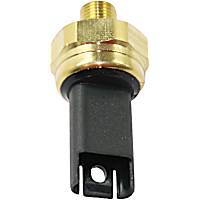 Fuel Pressure Sensor
Fuel Pressure Sensor
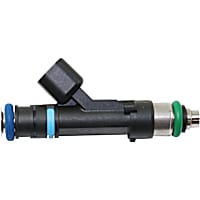 Fuel Injector
Fuel Injector
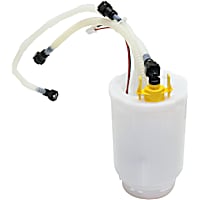 Fuel Pump
Fuel Pump
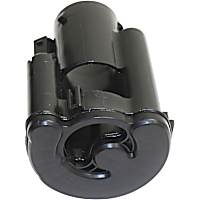 Fuel Filter
Fuel Filter
